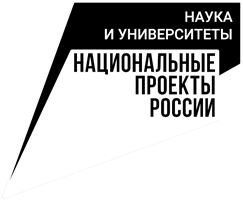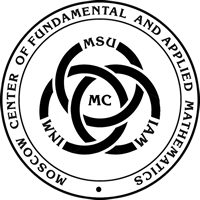155th meeting of the seminar
«Mathematical modeling of geophysical processes: direct and inverse problems»
The seminar is devoted to the consideration of various aspects of mathematical modeling of physical processes in the atmosphere, hydrosphere and active layer of land, associated with solving problems arising in the study of the problems of climate change and the natural environment.
Seminar Organizing Committee
| Leaders: |
Doctor of Physics and Mathematics A.V. Glazunov (Marchuk Institute of Numerical Mathematics of RAS) Doctor of Physics and Mathematics I.A. Repina (A.M. Obukhov Institute of Atmospheric Physics of RA) Doctor of Physics and Mathematics V.M. Stepanenko (RCC MSU, Geographical Faculty of Moscow State University) |
| Secretary: |
A.V. Debolsky (RCC MSU, A.M. Obukhov Institute of Atmospheric Physics of RAS). |
PROGRAM
17:15
| D.A. Sergeev | Institute of Applied Physics of RAS |
| Yu.I. Troitskaya | Institute of Applied Physics of RAS |
| E.V. Ezhova | Institute of Applied Physics of RAS |
| I.A. Soustova | Institute of Applied Physics of RAS |
INVESTIGATION OF THE DYNAMICS OF BUOYING TURBULENT JETS IN A STRATIFIED LIQUID AND THEIR MANIFESTATIONS ON THE FREE SURFACE IN THE FRAMEWORK OF MODELING THE FLOWS INDUCED BY DEEP WASTE WATER DISCHARGE SYSTEMS IN THE COASTAL ZONE OF THE OCEAN.
The study of the dynamics of floating turbulent jets is important for solving applied problems related to environmental pollution. The most well-known sources of such currents of anthropogenic origin in the coastal zone of the ocean are buried wastewater discharge systems, and in the surface layer of the atmosphere, chimney plumes of various industrial enterprises and power stations. In the present work, the studies were aimed at studying flows of the first type.
TIn the Large Experimental Basin with Artificial Temperature Stratification of the IAP RAS, a large-scale laboratory simulation of the non-stationary dynamics of floating turbulent jets formed during the outflow of wastewater from diffusers of underwater collectors was performed. For the first time, the effect of intense generation of internal waves was demonstrated during the interaction of emerging jets with a pycnocline, due to the excitation of self-oscillations of a globally unstable mode on it. The results of detailed measurements of the velocity fields in the jet using the Particle Image Velocimetry method made it possible to analyze the stability of the obtained flow velocity profiles using the normal mode method. It is shown that for sections of the jet with counterflow, the condition of absolute instability according to the Briggs criterion for axisymmetric oscillations of the jet is satisfied, which is a sign of the excitation of a globally unstable mode. The estimates of oscillation frequencies of the globally unstable mode are in good quantitative agreement with the measured spectrum of jet oscillations.
TUsing a modified Particle Tracing Velocimetry (PTV) method in the shallow thermocline stratification mode, the velocities of currents generated by internal waves on the water surface in the basin were measured. A theoretical model is developed that describes the fields of internal waves in the presence of a jet stream. Dispersion relations and structures of the lowest (first and second) modes of internal waves in a stratified basin are obtained for different velocities of fluid outflow from a reservoir model. The experimentally measured displacement field of isotherms is expanded in terms of the system of eigenmodes of internal waves. It is shown that a mixed mode of excitation of internal waves is observed in experiments, when the first and second modes exist simultaneously.
TThe characteristics of perturbations in the bulk of the liquid and on its surface are compared. The analysis carried out made it possible to prove that the velocity fields on the surface are indeed surface manifestations of internal waves.
The seminar will be held in the form of a webinar on the Zoom platform.
Topic: семинар "Математическое моделирование геофизических процессов: прямые и обратные задачи".
Time: April 21, 2022 05:15 PM Moscow (GMT+3)
Join Zoom Meeting: https://us02web.zoom.us/j/83893848613?pwd=amZMZWZIeU5PbXBielVhZWhNRWttZz09
Meeting ID: 838 9384 8613
Passcode: 843355
For communication on all issues related to the work of the seminar, please contact the academic secretary Andrey Vladimirovich Debolsky at and.debol@srcc.msu.ru

